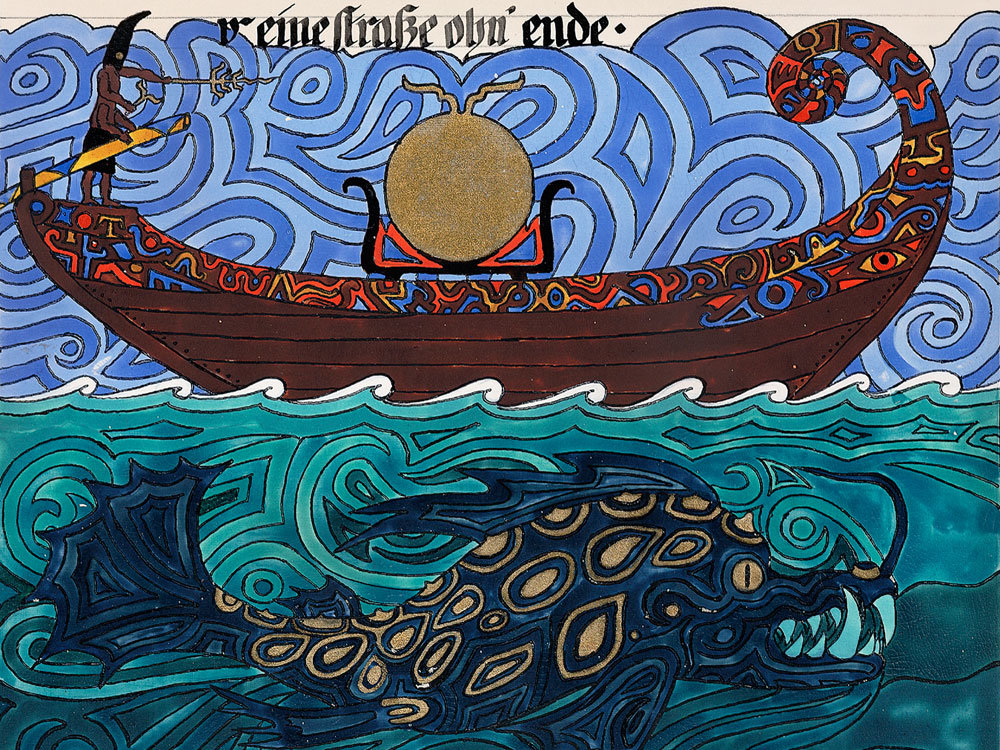I have already skewered Sigmund Freud, the founder of psychoanalysis. With the help of some other critics, I demonstrated the sheer wrong-headedness of his major theories. Freud, you may know, was very big on dreams—their meaning, their symbols both overt and covert, and how they should be deciphered. He would have us believe that dreams are most of all about hidden desires or “wish fulfilment.” If that is the case, shouldn’t every dream pertain to money, power, sex and/or cherry ice cream?
Insight or inspiration can derive from dreams, it’s true. Among the people who claim to have benefited in such a way are Albert Einstein, Mary Shelley, Srinivasa Ramanujan, Paul McCartney, Niels Bohr, Elias Howe, Robert Louis Stevenson, Otto Loewi, August Kekulé, Frederick Banting, Samuel Taylor Coleridge (“If a man could pass through paradise in a dream, and have a flower presented to him as a pledge that his soul had really been there, and if he found that flower in his hand when he awoke – Aye! and what then?”), Descartes, Keith Richards, Dmitri Mendeleev and Xerxes I.
But there is no way Freud or anybody else can explain a troubling dream I had in late 2020. The gist of it is as follows. A friend from my long-ago Texas days named Robert Reed somehow coerced me into joining him in a diabolical plan to kill people. We did so by means of planting bombs on doorsteps or in mailboxes, somewhat like Ted Kaczynski (a.k.a. “the Unabomber”) did between 1978 and 1995. But Kaczynski—now serving a life sentence in a Supermax prison in Colorado—only killed three people and injured 23 others. Me and Robert, we were far more murderous. In this awful dream, we planted one bomb that killed several people and planted another that killed even more. Then, as we were about to plant our third, I had a moment of conscience. I saw the face of a little boy, soon to be one of our victims. What had this cute kid done to deserve being blown to pieces by two people who didn’t even know him? And why were we planting bombs in the first place? The deeply disturbed Kaczynski claimed to have a rationale. Choosing to live in a remote cabin in Montana without electricity or running water, he wrote long essays (one of them consisting of 35,000 words) warning about the evils of modern technology and how it eroded human freedom and dignity.
planted one bomb that killed several people and planted another that killed even more. Then, as we were about to plant our third, I had a moment of conscience. I saw the face of a little boy, soon to be one of our victims. What had this cute kid done to deserve being blown to pieces by two people who didn’t even know him? And why were we planting bombs in the first place? The deeply disturbed Kaczynski claimed to have a rationale. Choosing to live in a remote cabin in Montana without electricity or running water, he wrote long essays (one of them consisting of 35,000 words) warning about the evils of modern technology and how it eroded human freedom and dignity.
If Kaczynski’s justification for killing innocents was insane, so was my dream in which Robert and I effectively imitated him. What did that dream mean? In real life, Robert (a few years my junior) did not lead, dominate or guide me at all. And why him? It could have been Larry Covin, my high school basketball coach; or Frank Jones, with whom I worked in Kentucky in 1977; or Cindi Williams, my childhood girlfriend; or the man who runs the CU convenience store down the street from me here in Seoul. None are any more or less plausible than Robert—who, by the way, would be horrified to know he had been assigned such a central and dastardly role in my dream. Most of all, nowhere in the deepest, darkest recesses of my mind have I ever thought of killing another human being.
I have had many strange and utterly bizarre dreams. Who hasn’t? I wake up and immediately wonder what the heck that was all about. In order to interpret a dream, one must first remember it completely and accurately. For me, this is hopeless since my disjointed dreams fade quickly. (The present one, so shocking, is an exception.) Any attempt to make sense of a bunch of surreal ideas, images and sensations jumbled up together, each one wilder than the last is absurd because—I think—it makes no sense!
hopeless since my disjointed dreams fade quickly. (The present one, so shocking, is an exception.) Any attempt to make sense of a bunch of surreal ideas, images and sensations jumbled up together, each one wilder than the last is absurd because—I think—it makes no sense!
Most dreams take place during the rapid-eye movement (REM) stage of sleep when brain activity is high. The average person has three to five dreams per night, lasting between a few seconds and 30 minutes. The best explanation I have heard is that in dreaming, the unconscious mind is running amok, doing things it cannot decently do in real life. This, I read, has positive effects on emotional health.
The claims of Carl Jung (Freud’s devotee who later broke with him) are, I confess, appealing. Reflecting Coleridge somewhat, he wrote in The Red Book (compiled between 1915 and 1930), “Dreams are the guiding words of the soul. Why should I henceforth not love my dreams and not make their riddling images into objects of my daily consideration?” Jung, who obviously valued dreams, called them a key to understanding fundamental archetypes and that by doing so a person could vastly enrich his or her life.
A less-famous American psychologist, Calvin S. Hall, spent 30 years performing systematic research on this subject. Hall developed a cognitive theory and wrote that dreaming provides clues about self, others, the world, and problems and  conflicts. As Freud was Jung’s mentor, so was Hall to G. William Domhoff. More of a sociologist than a psychologist, Domhoff conducted large-scale studies on dreams at the University of Miami. His conclusions were rather mundane compared to those of the other three gentlemen—that dreams just reflect the thoughts and concerns of our waking lives. Oh? To recapitulate, my waking life has been entirely devoid of considerations about homicide, regicide, fratricide, patricide, matricide, suicide or anything of the sort. I treasure life.
conflicts. As Freud was Jung’s mentor, so was Hall to G. William Domhoff. More of a sociologist than a psychologist, Domhoff conducted large-scale studies on dreams at the University of Miami. His conclusions were rather mundane compared to those of the other three gentlemen—that dreams just reflect the thoughts and concerns of our waking lives. Oh? To recapitulate, my waking life has been entirely devoid of considerations about homicide, regicide, fratricide, patricide, matricide, suicide or anything of the sort. I treasure life.
Dreams constitute a potent subject, and psychologists and neuroscientists (not to mention new-age poseurs) will continue to write books and articles about them. But until I am provided with a logical explanation of that one in which Robert and I committed random murders, I am inclined to believe dreams should not be taken too seriously. Trying to remember them, dissect them and understand them is a waste of time. As for people who make important life decisions on the basis of their dreams, maybe they ought to see a shrink.


2 Comments
Dreams, dreams, i have one lately! I dream that i planted a tree and it bear so many fruit from its trunk to its stems that all passer by would say: what kind of tree is that? Isn’t this something to think about?
Wow, that is obviously a good one….I would be pleased to have such a dream!
Add Comment